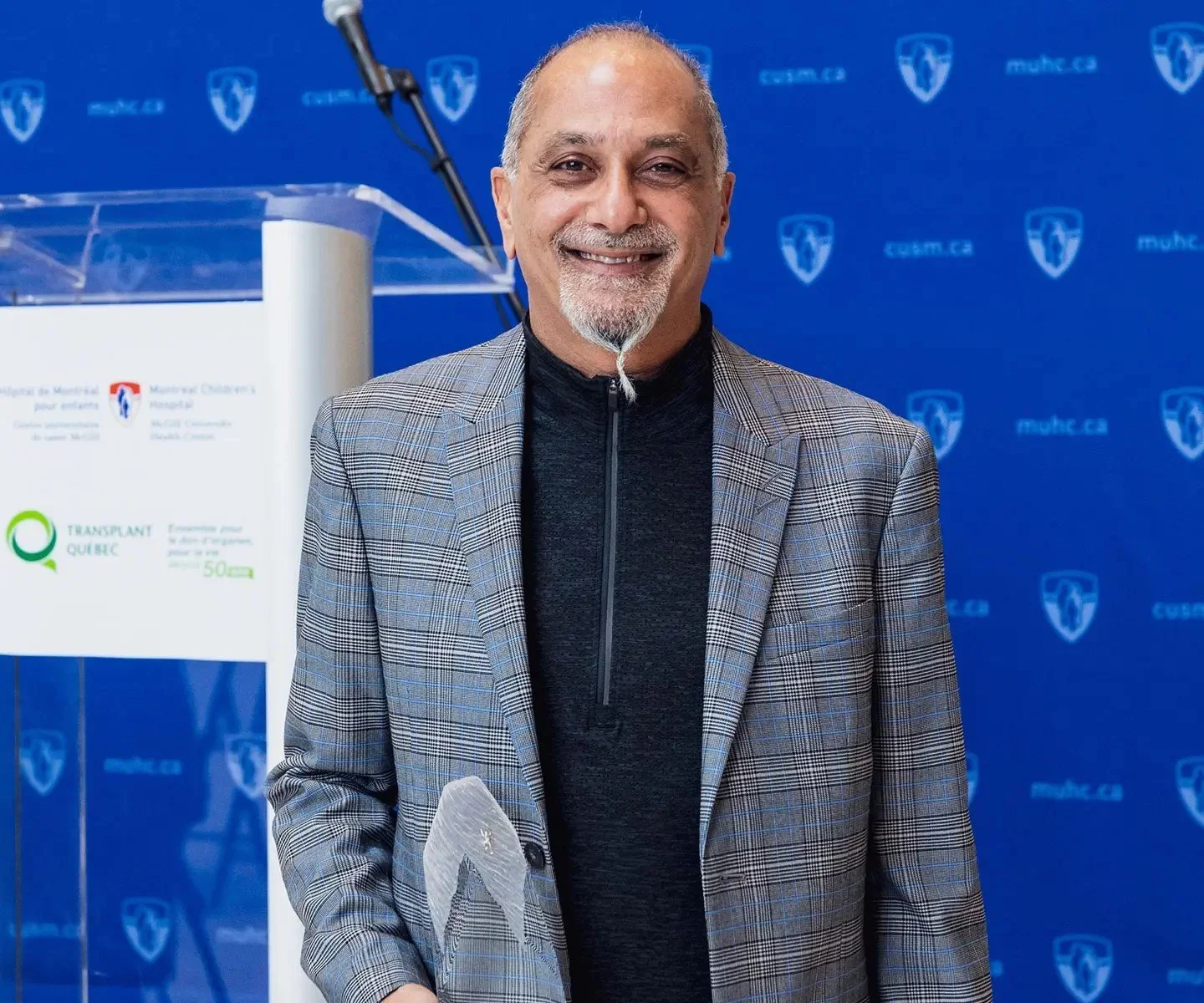CBS: Celebrating Dr. Sam Shemie, a world leader in organ donation
This Canadian physician’s passion to improve organ donation practices began with one of his own patients
Story by Canadian Blood Services
Dr. Sam Shemie’s drive to transform organ donation in Canada was sparked by a baby who needed a new heart.
Robbie Thompson was just six months old when he was admitted to Toronto’s Hospital for Sick Children (SickKids) with end-stage heart failure. He was transported from Courtenay, B.C., and was in and out of intensive care for months afterward. Family life was upended as his parents paused work and left home to care for him in a faraway city.
As Robbie’s intensive care doctor, Dr. Shemie was at the centre of the story. Yet what struck him was how little control he had over the outcome for this family. A lifesaving heart transplant could only happen if someone else in Canada experienced tragedy, and if — once hope was lost — that other medical team helped make donation possible.
“Watching their journey in the ICU [intensive care unit], I realized that if we’re going to do this and keep this kid alive for a transplant, then I have to rely on all these other hospitals to do their job around donation,” says Dr. Shemie, who is now a medical advisor for Canadian Blood Services. “If they’re not doing their job, this kid is going to die, and we’ve wasted time, money, energy, and created trauma for the family.”
Fortunately, Robbie was able to receive a new heart at the age of 18 months, followed by a second transplant a few years later. He grew up to be an organ donation advocate, competing in athletic events for transplant recipients in Canada and abroad.
As for Dr. Shemie, he’s worked tirelessly for more than two decades to increase organ donation rates to honour the wishes of families on behalf of dying patients and to serve the needs of those waiting for transplant. He’s done it through efforts to change hospital culture, support the creation of a national system for organ donation, and shape understanding of death itself.
‘To advance organ donation, you need a team of people’
For physicians in intensive care units, the mission is clear: save lives and relieve suffering. So perhaps it’s not a surprise that historically, many have seen it as a betrayal of the patient to even consider organ donation in the course of their duties.
But Dr. Shemie, who is now a medical advisor with Canadian Blood Services, saw a need for medical professionals to better navigate that tension. After all, over the course of their careers, he knew these physicians would also treat patients who needed organs, not just those with the potential to become donors after death. If organ donation rates could be increased without ever compromising efforts of lifesaving care, they would save more lives overall.
So, Dr. Shemie and some of his like-minded colleagues began publishing papers describing the challenges around organ donation that they had experienced in the ICU, with ideas for how to improve the system.
“We published our results, and said that in order to advance organ donation, you need a team of people,” Dr. Shemie says. “You need ICU doctors, nurses, social workers, donor coordinators, and it needs to be 24/7. You need to fix the problems of people not understanding brain death. And it has to been driven by the highest standard of medical, ethical and legal practice.”
In large part because of Dr. Shemie’s efforts, organ donation has gone from being seen as a conflict of interest, to an area of specialization for more than 150 donation-focused ICU doctors across the country. Their role is to ensure quality and safety in the system and protect the system from any compromise in ethical conduct. This role is of tremendous benefit to the Canadian health-care system. Either directly or indirectly, Dr. Shemie has mentored virtually every physician in Canada with involvement in organ donation.
“Dr. Shemie was instrumental in my development as an expert and advocate for donation in Canada,” says Dr. Sonny Dhanani, chief of critical care at CHEO, the children’s hospital in Ottawa, Ont. “He fostered curiosity and compassion from early in my training as a critical care physician and has unselfishly given me opportunities to develop, grow, and shine.”
Read the full article courtesy of Canadian Blood Services.
Choose to leave well so others can live well. Register to be an organ and tissue donor.




